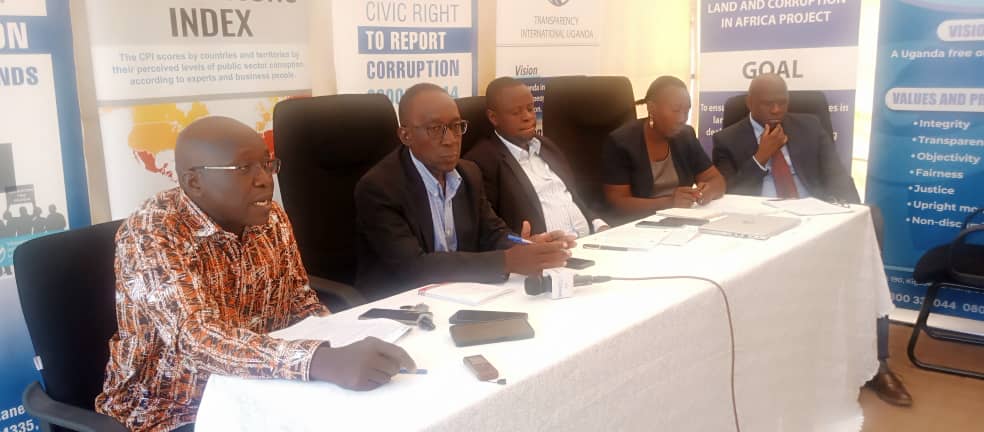Transparency International’s Corruption Perceptions Index (CPI) 2024, released today, highlights Uganda’s continued struggle in tackling public sector corruption.
Despite government initiatives such as the establishment of anti-corruption units and public awareness campaigns, Uganda’s CPI score remains stagnant at 26 out of 100, underscoring persistent challenges in curbing graft.
The CPI ranks countries based on perceived corruption in the public sector, with scores ranging from 0 (highly corrupt) to 100 (very clean).
Uganda’s score has remained unchanged since 2022 and represents a decline from 27 in 2020, signaling a lack of progress despite ongoing anti-corruption measures.
Globally, over two-thirds of countries scored below 50, emphasizing the widespread nature of corruption.
According to Transparency International’s 2024 report, corruption undermines democracy, fuels instability, and violates human rights.
It also impedes progress on critical global challenges such as climate change, where diverted funds hinder effective policy implementation.
Uganda’s struggles reflect broader regional trends. Rwanda leads East Africa with a CPI score of 57, while neighboring countries show varying levels of corruption: Tanzania, Kenya, and the Democratic Republic of Congo (DRC) each report different levels of progress.
However, the DRC (20), Somalia (9), and South Sudan (13) rank among the lowest, highlighting the extent of corruption in parts of the region.
The report also underscores the link between corruption and environmental crime.
Africa requires an estimated US$2.8 trillion to achieve its climate goals under the Paris Agreement, but corruption threatens to divert crucial resources.
More than half of the countries with a CPI score below 50 also report high levels of environmental crime.
With a score of 26, Uganda falls within this category, raising concerns about the misuse of climate-related funds.
Additionally, the report highlights the dangers faced by land and environmental defenders in Uganda and other countries struggling with corruption.
These activists often face violence, intimidation, and persecution for exposing illegal activities linked to corrupt practices.
In the past five years, over 1,000 environmental defenders have been murdered globally, with most of these incidents occurring in nations with CPI scores below 50.
In response to the ongoing crisis, Transparency International calls for:
Stronger anti-corruption institutions
Greater transparency in public procurement
Robust protections for whistleblowers
“It is essential that we integrate anti-corruption measures into climate action to ensure that resources meant for fighting climate change are not diverted,” said Transparency International Uganda Executive Director Peterson Wandera.
The 2024 CPI serves as both a wake-up call and a call to action for Uganda and other nations to strengthen governance, protect citizen rights, and ensure justice systems remain independent and transparent.
While efforts are ongoing, the stagnation in Uganda’s CPI score highlights the urgent need for stronger accountability measures to combat corruption effectively and ensure development funds reach those who need them most.


